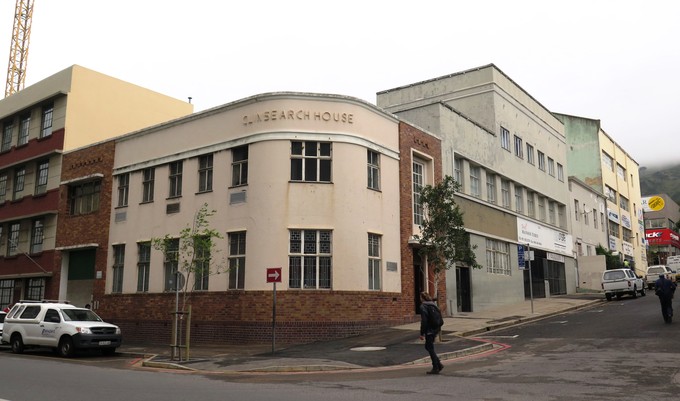Lack of parliamentary oversight in Western Cape property deals
“Rubber-stamping exercise” says Provincial Property Committee member
The Western Cape Provincial Property Committee (PPC) has admitted in a report that it is functioning in contravention of provincial regulations.
Published last month by the Western Cape parliamentary oversight committee, the report says the PPC has not tabled its annual report before the provincial parliament as required under the regulations of the Western Cape Land Act.
The Department of Public Works “has now undertaken to ensure that proper and complete records are maintained so that this provision is adhered to” states the report.
Lennit Max, the chairperson of the Portfolio Committee on Public Works and Transport, stated in an email of 30 August responding to an enquiry from Julian Sendin, a researcher at Ndifuna Ukwazi, that “the committee could not find any reporting” in terms of the Act. In response to a question from GroundUp, Max pointed GroundUp to the parliamentary oversight committee’s report that states that the PPC has not tabled its annual report.
The Act and its regulations state that the PPC must annually report to the Premier and to the Provincial Parliament on acquisitions and disposals of public land, and the Premier must submit an annual report to the provincial parliament that details all disposals of provincial owned land and the details of all formal offers received to acquire state land.
The PPC plays an important advisory and monitoring role, advising the head of immovable asset management as well as the Minister for Transport and Public Works in the Western Cape on the administration of state land. All land sold or purchased by the provincial government should be reported to the PPC.
The controversial sale of the Tafelberg site is one example of state land that passed through the PPC.
Committee members speak out
Members of the committee have also spoken out against the manner in which the PPC is run.
In September 2015, Bovain Macnab, an external member [a member who is not employed by the government, but who has property expertise] of the PPC, wrote a scathing email to the secretary of the committee that was leaked by a third party to Ndifuna Ukwazi. In the email he said that since he has been a member, no annual reports have been submitted.
“The provincial portfolio is in excess of R75 billion. The way this is operated, in my view, repeatedly fails our people and is in complete contravention of the constitution, the law, and the regulations,” he wrote.
“Worst of all, no one ever seems to be held to account.”
“Often the PPC is only quorate on account of the external members and PPC meetings are only called (late in this instance) when the Department has a crisis”.
He lists a number of outstanding items which are “repeatedly raised in PPC and unprovided over a number of years”.
Macnab has been a member for six years.
At a PPC meeting just after Macnab sent his email, external member Osman Narker said that the external members “feel like they attend the meetings purely as a rubber-stamping exercise”.
Premier Helen Zille’s spokesperson, Jamie Turkington said that the premier had since August 2010 designated the Minister of Transport and Public Works as the custodian of all Western Cape Provincial immovable assets, except housing land.
Turkington said that as such it is the department of Transport and Public Works that administers all provincial immovable property including the Act.
“Department is its own oversight”
Sendin describes Public Works as acting in a “rogue manner” without the oversight envisioned by legislature and therefore “able to drive its own agenda”.
According to Sendin, the PPC does “not even have a list of properties that belong to the provincial government, nor records of all the leases it is party to” and this “makes it practically impossible for the PPC to ensure accountability and transparency”.
Sendin is also critical of the fact that Public Works chairs the PPC, meaning its department is its own oversight.
If the Western Cape government hopes to redress the legacy of apartheid spatial planning, says Sendin, “the Premier needs to ask serious questions around the way in which the Department of Public Works has been functioning.”
GroundUp has tried since Wednesday to get a response from the Western Cape Provincial Department of Transport and Public Works. When a response is received it will be added
Public Works responds
The Department of Transport and Public Works (DTPW) responded: “This matter is receiving our urgent attention. The Department has appointed a new Chief Director: Immovable Asset Management and she will ensure that the PPC submits its annual report for 2016 during the first quarter of 2017.”
“DTPW is of the opinion that some of the issues raised by the PPC members have been resolved through engagement with the new Chief Director.”
Support independent journalism
Donate using Payfast

Don't miss out on the latest news
We respect your privacy, and promise we won't spam you.
© 2016 GroundUp. 
This article is licensed under a Creative Commons Attribution-NoDerivatives 4.0 International License.
You may republish this article, so long as you credit the authors and GroundUp, and do not change the text. Please include a link back to the original article.

